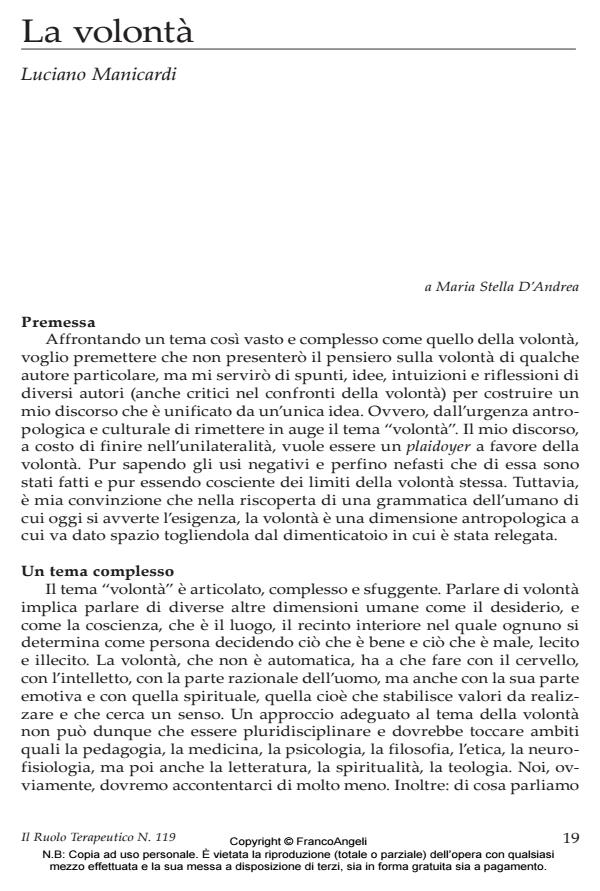Volition
Journal title RUOLO TERAPEUTICO (IL)
Author/s Luciano Manicardi
Publishing Year 2012 Issue 2012/119
Language Italian Pages 25 P. 19-43 File size 354 KB
DOI 10.3280/RT2012-119003
DOI is like a bar code for intellectual property: to have more infomation
click here
Below, you can see the article first page
If you want to buy this article in PDF format, you can do it, following the instructions to buy download credits

FrancoAngeli is member of Publishers International Linking Association, Inc (PILA), a not-for-profit association which run the CrossRef service enabling links to and from online scholarly content.
Manicardi uses the reflections of various authors to take up the subject of volition or will. He sees this as a fundamental anthropological dimension that in the age of "everything and now" and without effort has been forgotten, leaving free space to fatalisms and determinisms. Volition has to do with the rational as well as the spiritual parts of man. Since it implicates the individuation of a goal and the means for reaching it, it cannot be separated from an idea and from ethical considerations. But volition also means consistency: to wish to be ethical or spiritual, one must be ready to pay the price. Will activates man’s sense of responsibility, calling him to the task of governing his own life and not permitting it to be governed by other people or events. It might be defined as the spiritual organ of the future, just as memory is the spiritual organ of the past. In fact, for arriving at important human achievements one must be ready to carry responsibility for the past and assume the responsibility for shaping the future. Willing means promising and the will that promises creates the trust that is the foundation for relationships. Since loving is willing life for the other, love can be considered the ultimate and unifying volition.
Keywords: Responsibility, desire, memory, promise, freedom
Luciano Manicardi, La volontà in "RUOLO TERAPEUTICO (IL)" 119/2012, pp 19-43, DOI: 10.3280/RT2012-119003